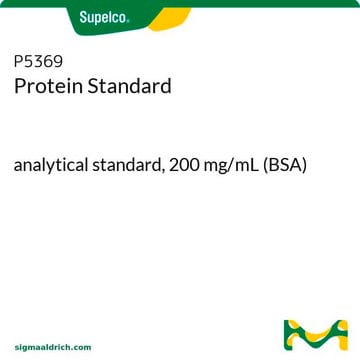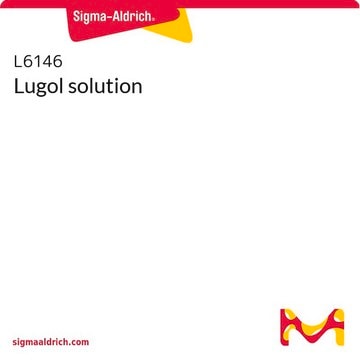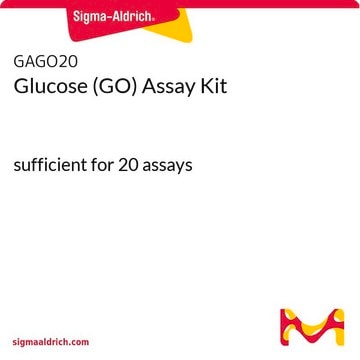11945
Benedict′s reagent
for the qualitative determination of sugars
Sign Into View Organizational & Contract Pricing
All Photos(1)
About This Item
Recommended Products
Quality Level
technique(s)
photometry: suitable
impurities
cupric sulfate
application(s)
food and beverages
general analytical
InChI
1S/C6H8O7.CH2O3.Cu.2Na.H2O4S.H2O/c7-3(8)1-6(13,5(11)12)2-4(9)10;2-1(3)4;;;;1-5(2,3)4;/h13H,1-2H2,(H,7,8)(H,9,10)(H,11,12);(H2,2,3,4);;;;(H2,1,2,3,4);1H2/q;;+2;2*+1;;/p-4
InChI key
QFKWSRIUZIYLCK-UHFFFAOYSA-J
Looking for similar products? Visit Product Comparison Guide
General description
Benedict′s reagents comprise of copper sulphate, sodium carbonate which functions as a mild alkali, and sodium citrate. It is quite stable. On boiling this reagent with glucose, it gives a white precipitate of cuprous thiocyanate. It is primarily used for the estimation of glucose in urine.
Application
Benedict′s reagent may be used during TLC analysis of mesocotyl methanol extracts during a study to evaluate sorghum resistance associated with accumulation of undetected toxic host metabolites. It may also be also be used to synthesize an SEM image of the cubic shaped Cu2O with smooth surface.
Other Notes
Reagent used for the detection of reducing sugars and other reducing substances; detection limit: 0.01 % glucose in water
Signal Word
Warning
Hazard Statements
Precautionary Statements
Hazard Classifications
Aquatic Chronic 2 - Eye Irrit. 2
Storage Class Code
12 - Non Combustible Liquids
WGK
WGK 3
Flash Point(F)
Not applicable
Flash Point(C)
Not applicable
Personal Protective Equipment
dust mask type N95 (US), Eyeshields, Gloves
Choose from one of the most recent versions:
Already Own This Product?
Find documentation for the products that you have recently purchased in the Document Library.
Customers Also Viewed
R.L. Shriner, et al.
The Systematic Identification of Organic Compounds (1980)
R L Nicholson et al.
Proceedings of the National Academy of Sciences of the United States of America, 84(16), 5520-5524 (1987-08-01)
Infection of the sorghum mesocotyl by Helminthosporium maydis (a nonpathogen) and Colletotrichum graminicola (a pathogen) resulted in the rapid accumulation of a pigment complex by two sorghum cultivars. The components of the complex were fungitoxic. The principal compounds have been
Textbook of Medical Biochemistry.
Ramakrishnan S
Science, 18-19 (2004)
J D McCue et al.
Diabetes care, 6(5), 504-505 (1983-09-01)
The possibility that three new penicillins (mezlocillin, pipericillin, and azlocillin) and two new cephalosporins (ceftazidime and cefoperazone) might give false positive urine glucose testing results was studied. High and low concentrations of antibiotics were dissolved in urine and tested with
Problems in hemodialysis.
G Zasuwa et al.
The New England journal of medicine, 306(25), 1550-1550 (1982-06-24)
Our team of scientists has experience in all areas of research including Life Science, Material Science, Chemical Synthesis, Chromatography, Analytical and many others.
Contact Technical Service










